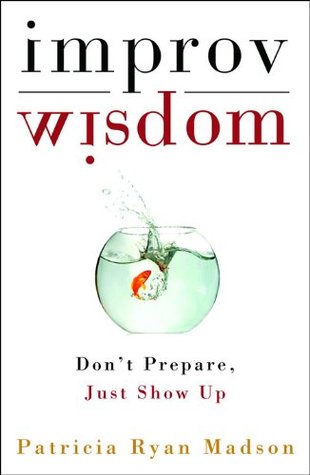More on this book
Community
Kindle Notes & Highlights
Read between
July 13 - July 26, 2014
Making decisions solely to please others is a formula destined to fail.
Blocking comes in many forms; it is a way of trying to control the situation instead of accepting it. We block when we say no, when we have a better idea, when we change the subject, when we correct the speaker, when we fail to listen, or when we simply ignore the situation. The critic in us wakes up and runs the show. Saying no is the most common way we attempt to control the future.
When we give up the struggle to show off our talent, a natural wisdom can emerge; our muses can speak through us.
Fear is not the problem; allowing your attention to be consumed by it is.
When the human heart has something to say, saying it is always timely.
rituals at the beginning of each session had the effect of creating order and harmony.
During my workshops and classes, I ask students several times each hour to “change where you are in the room.” Everyone gets up, shuffles around, and reorganizes themselves into a new pattern. As we move around seeking new locations within the same room, we help our minds to stay alert and avoid getting stuck in a rut.
Writers write to discover what they have to say bringing to consciousness what they already know.
To improvise is to create order out of chaos.
“The real voyage of discovery lies not in seeking new landscapes but in having new eyes,” said Marcel Proust.
Do what is natural, what is easy, what is apparent to you. Your unique view will be a revelation to someone else.
What is ordinary to you is often a revelation to others.
Wishing things were different (or that I was different) simply wastes time.
Dealing well with people we like is easy; the mark of a fine improviser is his ability to work skillfully, kindly, and respectfully with those with whom he has difficulty.
life is all about balancing, not about being balanced.
Instead of asking, “What do I feel like doing?” substitute “What is my purpose now?”
There are gifts everywhere if we learn to see them.
Objectivity requires that I shift out of my egocentric view. Rarer still is the approach of contemplating the “gift” apparent in the moment. This takes a new kind of effort.
it takes another lens to view it this way— to see these amazing loans from the universe. Perennial wisdom has supported the idea of man as steward rather than master of our world. Traditional Native American culture emphasizes this perspective.
—investigating my debt to the world.
What had I received from others during my life? What had I given back to them? What trouble or bother had I caused them?
While the critical method sharpens the mind, it dulls the heart.
Practice thanksgiving. See how many times each day you can find to say thank you. Express thanks out loud, looking for variations of ways to express it (“Thanks”; “It was kind of you”; “I appreciate it”; “How thoughtful of you”).
Kindness has a way of returning tenfold to the giver.


